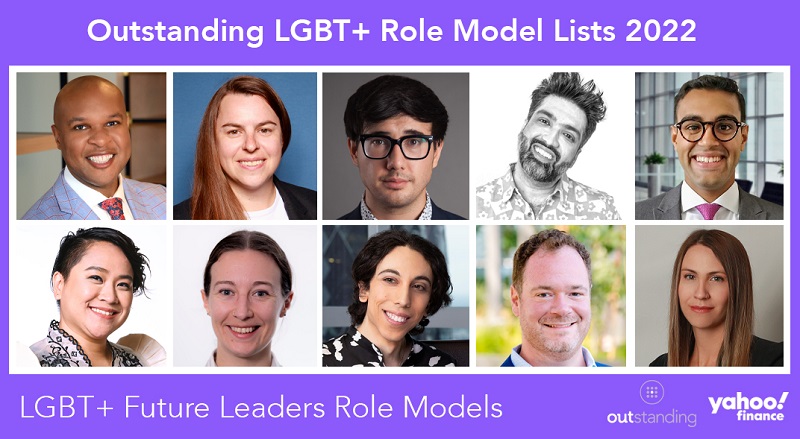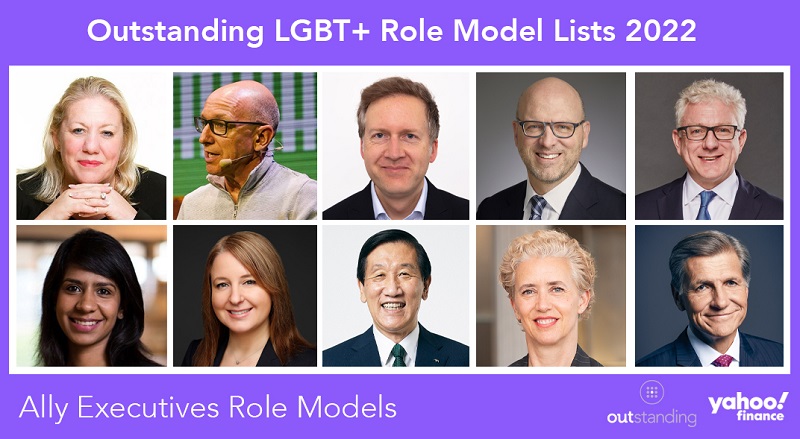Ninety-two per cent of LGBT+ employees think there are barriers preventing those from the LGBT+ community from reaching senior roles, according to new data released by INvolve, a global network for diversity, equity and inclusion in business.
The latest study from INvolve marks the release of its annual Outstanding LGBT+ Role Model Lists, showcasing global business leaders and allies who are breaking down barriers and creating more inclusive workplaces for LGBT+ employees.
Barriers to progression
On some of the obstacles to blame, 42% say a lack of senior LGBT+ role models in their industry is hindering LGBT+ progression to management positions. A third (30%) say senior management is more likely to promote non-LGBT+ employees who have more in common with them, and over a quarter (28%) say they have been actively discriminated against by senior leaders when deciding promotions. 1 in 5 (19%) have been prevented from interacting with clients due to company concerns about reactions to their LGBT+ identity.
Indeed, almost two-thirds (62%) of LGBT+ employees believe they will have to ‘code-switch’ – tone down their LGBT+ identity and act ‘straight’ – to progress in their careers. This figure increases significantly for trans individuals (85%) and lesbian women (68%). Furthermore, those working in the construction (92%) and finance (70%) industries are far more likely to think they will have to code-switch to get ahead. Just 40% of all LGBT+ employees polled are open about their identity with everybody at work.
The LGBT+ pay gap
The research found that half of all employees surveyed (49%) believe their company has an LGBT+ pay gap. This is significantly higher among those working in construction (62%), finance (59%) and IT (67%), demonstrating that certain industries still have a long way to go in becoming more inclusive.
This research comes as INvolve releases its annual Outstanding LGBT+ Role Model Lists, which celebrate and showcase LGBT+ business leaders and allies who are breaking down barriers and creating more inclusive workplaces across the world.
With an incredible 23 countries represented this year, the global nature of the Outstanding lists reflects the myriad of lived experiences and unique stories. It provides a compelling intersectional insight into global LGBT+ communities. Overall, 18% of the Role Models on this year’s lists are from countries outside Europe and North America.

Role models
Suki Sandhu OBE, Founder and CEO of INvolve, says: “Our Outstanding LGBT+ Role Model Lists celebrate role models in business who are smashing barriers to progress that can prevent global LGBT+ communities from succeeding and are creating businesses where everyone can thrive as their authentic selves. With the recent rise in hostility towards the LGBT+ community across the world, it’s never been more important to celebrate and learn from those who are driving real change.
“It’s disappointing, to say the least, to see that LGBT+ people are still being held back from reaching their potential and progressing to the most senior levels in business. Ultimately, we all want, and deserve, to see ourselves meaningfully represented in aspirational career positions.”
Ken Ohashi, CEO at Brooks Brothers, is number one on this year’s global Outstanding LGBT+ Executives Role Model List and says: “I feel honoured to be included on a list with so many accomplished leaders, many of whom I consider role models myself. There are so many young people who struggle for acceptance or have circumstances or challenges that they must overcome. I hope that having visible LGBT+ leaders can inspire and reassure those just beginning to make their way in the world that their potential is limitless.”

Travis Torrance, Global Litigation Bankruptcy & Credit Team Lead at Shell USA, Inc., is named number one in the Outstanding LGBT+ Future Leaders List: “Sharing the success stories of LGBTQ+ business leaders has never been more important. I firmly believe that ‘you can’t be what you can’t see.’ In other words, visibility matters and provides a roadmap for the next generation of leaders. We must do everything we can to affirm the identities of LGBTQ+ professionals, celebrate our unique voices, and kickstart important societal and commercial conversations.
“Although we don’t do this work for recognition, being included as one of the Outstanding LGBT+ Role Models makes me feel seen by society at large and the business community as opposed to being rendered invisible, which, unfortunately, has been the case for so many LGBTQ+ professionals. It means the world to me to be fêted along with such a dynamic cohort of leaders and to share best practices that will move the needle in our respective organisations.”
Jen Tippin, Chief People & Transformation Officer at NatWest Group, is named number one in the Outstanding Ally Executives List: “I’m absolutely delighted to be recognised as an Ally Executive Role Model. My work to support the LGBT+ community is inspired by my passion for ensuring inclusion for all, and I am humbled to work on helping everyone to be themselves and to realise their potential. This recognition is a testament to the work many colleagues, including our Rainbow network co-chairs, have collaborated on.
“Role models play a huge part in helping colleagues bring their authentic selves to work. We spend so much of our time at work, and the impact of being ourselves cannot be underestimated. We want to have a truly open and diverse culture with acceptance for all, without exception – and by attracting and retaining diverse and talented people to work here, we’ll create better experiences for all our customers.”








